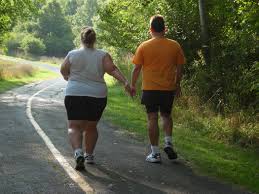Masculinity difference with being obese

Masculinity difference with being obese are very distinct with burning of excess body fats recommended for obese people
Masculinity difference with being obese: The common denominator
Have you seen well or heavily built men lifting heavy metals, stones or punching sand bags in your environs? Who would you compare them in relation to obesity and weight gain? What about heavy ladies some of whom are even struggling to stand on their two feet are they obese? I want to explain a few things concerning obesity and weight gain to have a clear understanding of the masculinity differences with being obese. Many people think that there is a dramatic difference in how obesity affects both genders. The reality is we have more in common than not with a few distinguished differences. For instance both genders are equally getting emotional and struggle with their physical look. Their self-esteem and social status are affected in equal measure.
Going by the introductory remarks there is a clear difference between the heavily built men for sure they are not obese since their body fats is constantly being worked on in their session of lifting their heavy objects the opposite is true about the ladies who accumulate lots of fats with very little being burn as cholesterol. Therefore the latter will be obese or overweight depending on their BMI as detailed below:
- BMI of 25 to 29.9 means you are considered overweight
- BMI of 30 to 39.9 means you are considered obese
- BMI of 40 or above means you are considered severely obese
Masculinity difference with being obese: Eating habits and gender
Feeding habit is something that is of clear concern when it comes to the behavior of both genders. According to a study conducted by Foodborne Disease Active Surveillance Network (Food Net) it was established that men are heavy consumers of red meat especially when roasted and certain poultry meet while women were likely to feed on fruits and vegetables. In both cases the different gender found comfort in food with each approaching this aspect of food differently. In other studies it has been established that men are likely to be heavy eaters at the celebration events particularly feeding on higher protein food stuff whereas women will take foods to cope with negative experiences and choose higher calorie sweet snack foods such as chocolate or ice cream.
The stereotype of the man going out for a big steak dinner to celebrate a promotion at work and the woman drowning her sorrows for the lost relationship in a half gallon of ice cream actually have scientific merit. What am I trying to explain here, I am not just saying that men don’t deal with negative emotions with food as women do, but that times of celebration are also times of risk for poor eating decisions. It is in these celebratory activities where men seem to be more unique and choose to feed themselves in discriminatively to crown the event. In so doing they lose track of their diet and gain more pounds. The part where men get lost is that coping occurs not just with negative emotions, but even with the positive ones. We often think about our bad decisions and negative coping, but men are more apt to throw caution to the wind in the efforts of celebration. We appreciate that understanding some of these health issues may be difficult and that is why you need to be consulting with doctor Akoury from time to time.
Masculinity difference with being obese: The common denominator
http://www.integrativeaddictionconference.com/wp-admin

